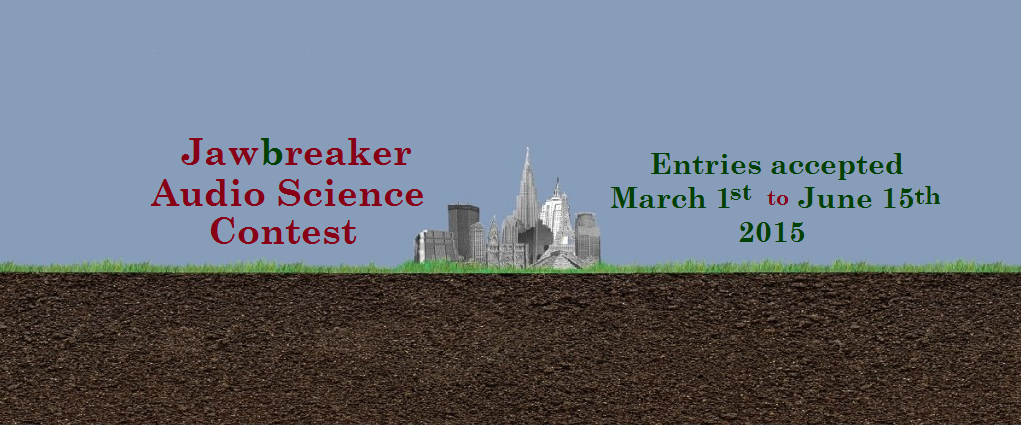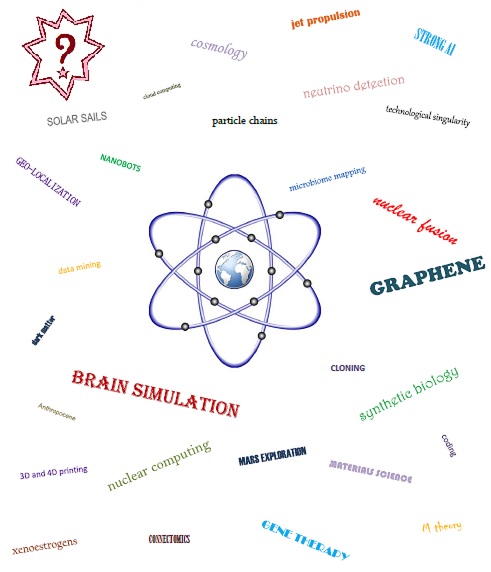Sample entry of a Jawbreaker finalist Amanda H: The Science of Love
Fermilab’s search for Dyson Spheres ◊ Places of pi memorizing contests ◊ Goldilocks planets ◊ Comparing theories of autism ◊ Explaining string theory with stringed instruments ◊ The future of Moore’s Law ◊ Plant evolution ◊ Personalized medicine via the microbiome ◊ Carbon dating ◊ The linguistics of species naming ◊ nuclear waste eating bacteria ◊ Obsolete big science equipment ◊ Stem cells ◊ Artificial meat ◊ Cancer vaccines ◊ Pandemic statistics ◊ Dark matter ◊ CERN ◊ Research funding around the world ◊ Breast structure ◊ Digestion ◊ Brown fat and metabolism ◊ Road-testing new technologies ◊ Virtual reality advances ◊ Perception of color ◊ Grand Unified Theory ◊ Cold fusion ◊ Naming the elements ◊ University level math program comparison ◊ 10 base counting ◊ Fertility treatments ◊ Nanobots ◊ Flocks and swarms ◊ Neuron growth and learning ◊ The Feng Shui chemistry lab ◊ How bulletproof vests were invented ◊ The methane cycle ◊ Neanderthal genomics ◊ Star formation ◊ Addiction science ◊ Missions to Mars
RAMP IT UP ¤ DUMB IT DOWN ¤ MASH IT UP ¤ TURN IT AROUND
The key audience is an educated general public.
If your concept is very simple, you can make it more complex by showing applications of the concept in use or combining it with other topics.
If your work is highly specialized, create an opportunity to explain it outside of your discipline. Use metaphors or real-life examples.
Making your topic accessible to a wide audience creates enthusiasm for your work.
Try our 10 second quiz to find a topic idea


